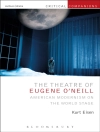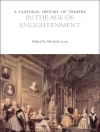As European theatre directors become a familiar presence on international stages and a new generation of theatre makers absorbs their impulses, this study develops fresh perspectives on Regie, the Continental European tradition of staging playtexts. Leaving behind unhelpful clichés that pit, above all, the director against the playwright, Peter M. Boenisch stages playful encounters between Continental theatre and Continental philosophy.
The contemporary Regie work of Thomas Ostermeier, Frank Castorf, Ivo van Hove, Guy Cassiers, tg STAN, and others, here meets the works of Friedrich Schiller and Leopold Jessner, Hegelian speculative dialectics, and the critical philosophy of Jacques Rancière and Slavoj Žižek in order to explore the thinking of Regie – how to think Regie, and how Regie thinks. This partial and ‘sideways look’ invites a wider reconsideration of the potential of ‘playing’ theatre today, of its aesthetic possibilities, and its political stakes in the global neoliberal economy of the twenty-first century.
Spis treści
Preface. The dissensus of Regie: Re-thinking “directors’ theatre”I. Mise en scène to mise en sens: Towards an aesthetic politics of Regie
1. Regie beyond representation: Directing the ‘sensible’
2. The restless spirit of Regie: Hegel, theatrality, and the magic of speculative thinking
3. Theatre as dialectic institution: Friedrich Schiller and the liberty of play
4. The essence of the text and its actualisation: Leopold Jessner, the playwright’s radical servant
II. The theatral appearing of ideas: Regie in contemporary European theatre
5. The tremor of speculative negation: On Regie, truth, and ex-position
6. Seeing what is coming: On Regie, playing, and appearing
7. The intermedial parallax: On Regie, media, and spectating
8. Theatre in the age of semiocapitalism: On Regie, realism, and political critique
Afterthought: The future of Regie?
Bibliography
Index
O autorze
Peter M. Boenisch is Co-Director of the European Theatre Research Network (ETRN) and a Fellow of the International Research Centre 'Interweaving Performance Cultures’












